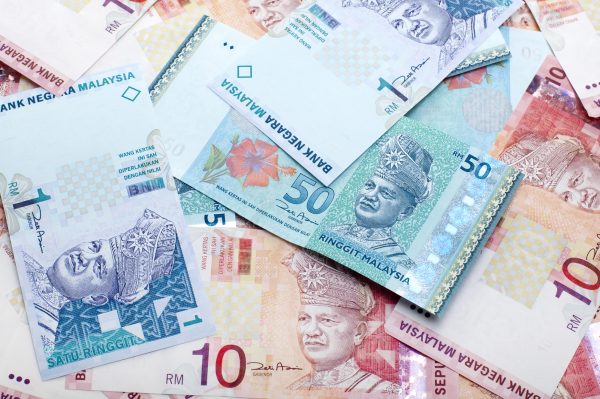NPR’s Adrian Ma speaks with Cerian Richmond Jones of The Economist about the decision by Nigerian and Ethiopian governments to float their respective currencies.
ADRIAN MA, HOST:
Two of Africa’s biggest economies are taking drastic measures to stabilize those economies. In recent months, Ethiopia and Nigeria have been facing severe inflation, mounting debt and trouble attracting foreign investment. And as part of their efforts to address these problems, they have switched their currencies from a fixed exchange rate to a floating exchange rate, which sounds a little wonky. But basically, floating a currency means the government no longer sets its exchange rate value, and instead, it lets the market do that. It is a bold step that could risk making things worse for the people of Nigeria and Ethiopia if it doesn’t go well.
So to explain what’s at stake here, we are joined by Cerian Richmond Jones. She’s a reporter for The Economist who covers economic trends in the Global South. Cerian, thanks for talking with ALL THINGS CONSIDERED.
CERIAN RICHMOND JONES: Thanks so much for having me.
MA: And just to start us off, how big of a deal is it for a country to decide they’re going to float their currency’s exchange rate?
JONES: It’s a huge deal, not just because these are really big and important countries – so hundreds of millions in each of Ethiopia and Nigeria – but also because it has such an impact on each of those millions of people’s daily lives. So what happens when a government floats a currency is that it plunges in value, usually, because the government has spent a lot of money trying to prop it up and make it more valuable. And when that happens, all the things that people import to consume in their daily lives – most importantly, food and fuel – become much, much more expensive.
So there’s effectively a cost-of-living crisis. And at the same time, exports theoretically should get cheaper, so it should be good for manufacturers. But the thing is, is that that takes much longer to have a good effect on the economy than it takes for people to feel the bad effects of the import price rises. So what we’re seeing in the moment in Nigeria, which floated its currency a year ago, is protests with hundreds of thousands of people who are angry at just how much they’re having to pay for food and for fuel. People are talking about not being able to feed children. It’s shocking to see.
MA: It’s almost like the medicine hurts more than the cure, which is still kind of a ways off.
JONES: Yeah, absolutely. And the real risk is that that cure never comes through.
MA: Ethiopia decided to float its currency last month, Nigeria about a year ago. Why is it tricky or even risky for these economies to float their currency?
JONES: It’s really risky. These currencies have been fixed because the government wants to make them more valuable because that makes imports cheaper, right? And that often means that when they float them, they don’t actually know where they’re going to settle. And so what we’ve seen in other countries, such as Egypt, is that…
MA: Right. They decided to float their currency earlier this year.
JONES: Yes. And it’s much bigger, often, than policymakers are anticipating. So you can kind of imagine a situation where you think that your currency is going to lose about 10% of its value when the market decides on its value rather than the government. And actually, often, that dip ends up much bigger than governments are anticipating. So you get much more inflation than you were thinking about.
And politically, it’s a complete gamble as well because what you’re asking your citizens to do is understand quite complex economics. You’re understanding them – you’re asking them to understand that they have to kind of take this real hard hit to their consumption, to their daily life now, in order to maybe gain down the line, kind of four, five years in advance. And the populations of Ethiopia and Nigeria are angry. Their governments have a lot of problems anyway. And I think what we’re seeing is that that’s a really, really difficult trade-off to communicate and ask populations to make.
MA: Thus, the protests that we’ve seen in recent weeks over the cost of living.
JONES: Yeah, exactly – in Nigeria. And when we look at kind of what’s happened to Ethiopia in the last few years, the social situation there seems even more caustic and likely to catch fire than Nigeria’s does. A lot of people are talking about how the government’s priority should be – as conflict dies down, should be reconstruction and spending rather than fiddling around with the currency. So all of these things put more and more pressure on the politics as well.
MA: Last question – in a recent piece in The Economist, you wrote about Ethiopia and Nigeria, and you ended by saying, quote, “unless it’s matched by changes at home, currency reform will do little to put the two economies on a more sustainable footing.” Can you just explain what you mean by that?
JONES: So what we mean by that is that it’s all well and good when a government messes around or fixes problems with the currency. It gives a bit of a boost to the manufacturing sector, and it gives a boost to exports. So this should make Ethiopia and Nigeria’s exports more attractive, which is the kind of upside. We’ve been talking a lot about the downsides, but that’s the upside.
The problem with that is that the manufacturing sector will only really start going and start being boosted if the government has the right policy in place, and that goes far beyond currency. Particularly, Ethiopia is one of the most kind of unorthodox economies in the world. It looks very little like the United States. Most of the economy is owned by the government. All the big firms are run by the state. Capital controls are all over the place.
And currency reform is the – it’s kind of the last step, often, that economies take. So really, the governments of Ethiopia and Nigeria have kind of pulled the rug out of the economies that they govern, and there’s still all this other stuff, all this more fundamental stuff that they still have to do. And no one really knows how the chips are going to fall.
MA: We’ve been speaking with Cerian Richmond Jones of The Economist. Cerian, thanks so much for taking the time.
JONES: Thank you so much.
Copyright © 2024 NPR. All rights reserved. Visit our website terms of use and permissions pages at www.npr.org for further information.
NPR transcripts are created on a rush deadline by an NPR contractor. This text may not be in its final form and may be updated or revised in the future. Accuracy and availability may vary. The authoritative record of NPR’s programming is the audio record.





















Discussion about this post